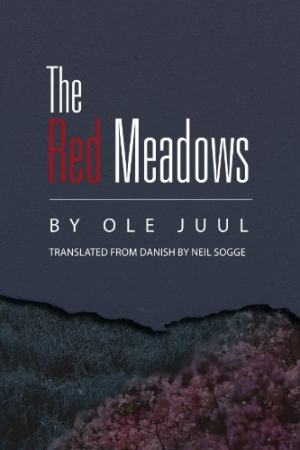The Red Meadows
When under duress, the mind wanders, traveling with little logic and searching for something to anchor itself upon. Such is the journey related in the English translation of The Red Meadows, originally published in 1945 in Denmark.
Through the often disjointed recollections of an imprisoned, tortured Michael Lans—a man possessed of an astounding depth of spirit, determination, and emotion—the questions of how he came to be a Danish freedom fighter, found love, came to be captured, and ferreted out the traitor in his midst are revealed, set against the backdrop of World War II just after the fall of Munich. This first-person narrative illuminates Michael’s time in a Nazi prison, as he speaks of fellow inmates and guards with equal measures of affection and distain for both.
Even Michael’s own description of himself is tainted with skeptical truth, “I am a poor patriot. I tend to dismiss the notion that there is such a thing worth dying for. Every time I hear that one of my comrades has died in the line of duty, I am sick to my gut. I doubt that the cause for which they died was worth more than their own specific lives.”
Ole Juul (1918-2009) served in a capacity similar to Michael’s, so it is reasonable to believe that many of the exploits in the book are based on his own experiences. Though there are incidents of untranslated dialogue that inhibit understanding and disrupt the flow of the story, in his first translation, Neil Sogge has paid great tribute to the man and the tale he had to tell with this artful work.
Michael’s memories of his wartime romance are both touching and heartbreaking, a counterpoint to his time in prison and the sadness of his narrative. From the onset, it’s clear that what lies ahead is a sad story, as the well-crafted prose is awash with melancholy; in truth, the majority of it is quite maudlin, reminiscent of the great Aleksandr Solzhenitsyn. Immersing oneself into such a disheartening world where war reigns and man is inhumane to man is difficult. Such stories must be told, but they are not for the faint of heart.
Yet the true treasure of this story lies in the craft of its language, which is lyrical and poetic, as when Michael describes his jailor: “Warmth radiates from him, this storytelling prince, who then transforms into a bee. He inches his mouth, squints his eyes, and hums like a bee floating around flowers for nectar.”
Perhaps the author penned the most poignant description of his own work, which was made into an award-winning movie shortly after the end of the war, when Michael states, “I have always wished that I could write something beautiful, something sublime, something that is indispensable in itself, but that would require the use of words that don’t at all exist, because the most transcendent of things are beyond words.”
Reviewed by
Donna Russo Morin
Disclosure: This article is not an endorsement, but a review. The publisher of this book provided free copies of the book and paid a small fee to have their book reviewed by a professional reviewer. Foreword Reviews and Clarion Reviews make no guarantee that the publisher will receive a positive review. Foreword Magazine, Inc. is disclosing this in accordance with the Federal Trade Commission’s 16 CFR, Part 255.

